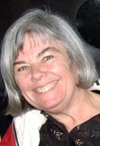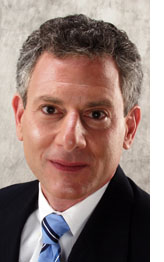| |
|
.

NOW-SUNDAY, SEPTEMBER 7
.
FRIDAY, SEPTEMBER 12, 2008 Temple Solel S'more Shabbat

________________________________________________________
MON., SEPT. 29-THURS., OCT. 9


LETTER FROM JERUSALEM
Former American, now an Israeli, finds
faults with both Obama and McCain
By Ira Sharkansky
JERUSALEM—I have not voted in the United States since I came to Israel 33 years ago. Participating in one country's politics is enough for me. On the other hand, I used to teach about American politics, and retain an interest in what happens there.
I cannot claim insight on many of the issues that concern Americans. Much of what I see has to deal with national security. That means the candidates' postures and experience, and what they may mean for Israel and other clients of the United States.
A television moment helps to define what is important to us and Americans. Varda and I were watching one of Israel's channels in the living room, where the principal item was the war in Georgia. Mattan told us that John Edwards' sex life was the only story on Fox news.
Both McCain and Obama have substantial negatives. I do not like McCain's inclination to solve knotty problems with the American military. I think he is wrong on Georgia, viewing it as a line to be drawn in the sand against an expansionist Russia. I admire his refusal to define an end date for Iraq, but I cringe when he talks about staying until victory. A re-ignited Cold War hardly seems the best way to deal with Iraq, when one of the source problems is Iran, a client of Russia.
The key element in Barak Obama's campaign is himself, his thrilling life story, and what it means for a promise of change. This year may provide him enough material for publishing a third autobiography, all before the age of 50.
His childhood and career could make a good movie. I do not see its relevance for the White House. One has to go back to Wendell Wilkie to find a candidate for the presidency with less of a track record in elective office. Wilkie's experience was richer than Obama's, since he headed a major electric utility with frequent involvement in the important policy issues of the time.
Among the problems in knowing what Obama would do as president is the large number of people who claim access to him. He has the largest number of paid staffers of any previous candidate. The 900 or 1,400 people on his still expanding payroll are twice the number in Bush's campaign of 2004, and three times the number of McCain's current staff.
Most of these are bush beaters in key states. However, enough names have surfaced with campaign titles to express the candidate's position as to leave me thinking of an organization gearing up for its opportunity to expand the Imperial Presidency. Along with Obama's lack of a track record, it adds to my wondering about where is the real Obama in all the noise, or what positions noted by a staffer reflect his own considered views.
I am not alone in my doubts. One article after another focuses on the weakness apparent among those inclined to vote for him, even according to polls that show him marginally ahead. One cannot overlook the lingering issue of race. For many people who have expressed themselves, what is important is not his impressive skills as a campaigner, but a lack of certainty about his substance.
Were I voting in this election, I would not choose the candidate I favor, because there is none. There remains the well know device of picking the least undesirable, or the better of the bad.


THE VIEW FROM JINSAFormer captive nations want to be in NATOBy Shoshana BryenWASHINGTON, D.C.—For months, the Polish government has been waffling and haggling over the terms of an agreement with the United States to install 10 missile interceptors in Poland. It was not a small decision. While the interceptors are positioned to pose no threat to Russian missiles (they could catch Iranian missiles), the Poles no doubt feared provoking the Bear.
Until last week.
Announcing his country's intention to sign, Polish Prime Minister Donald Tusk said, "Poland and the Poles do not want to be in alliances in which assistance comes at some point later - it is no good when assistance comes to dead people. Poland wants to be in alliances where assistance comes in the very first hours of - knock on wood - any possible conflict."
Ukraine, which had not been asked for anything, announced that it would give both Europe and America access to its missile warning systems (which were previously part of Russia's early warning system until Russia annulled the deal). Last week, Ukraine's president, Viktor Yushchenko, said the Russian lease of the Ukrainian port of Sebastopol would be scrapped if Russian vessels joined the conflict in Georgia.
Estonia and Latvia sent computer specialists to Georgia to help restore systems the Russians hacked, and gave the Georgian government space on their official government websites.
These are reminders that the formerly captive nations of Central Europe, plus breakaway parts of the old Russian/Soviet Empire, did NOT make the mistake Presidents Bush, Clinton and Bush did, assuming that Russia would accept the dissolution of the empire with equanimity. Their push for NATO and EU membership are NOT the result of American bribes or pressure; NOT the result of an American attempt to encroach on Russia's flanks and poke the Bear; NOT, in fact born of American or NATO policy at all. They are the determination of people who know how terrible it was to live under Soviet domination NOT to do it again.
It was relatively easy for Americans to look at Czechoslovakia, Poland, Hungary, et al. and say, "Well, yes, they are poorer than the West, but it doesn't seem to have been so bad for them." Prague, Budapest and Warsaw were attractive cities - at least the parts tourists saw - and the women somehow always looked fashionable. But it was bad for them, they don't want to go back and they will fight to stay in our club.
This has to be part of NATO's calculation - not only whether our club wants them and the Russians don't want us to have them, but what the countries on the outside will do. It was not helpful for Ukraine to ratchet up the threat level precisely when the West was trying to lower it, but we don't control them - can't control them - and they are afraid.
If Russia were other than Russia, it could be clear to Putin that clubs are altogether a bad idea. Free flow of goods, services, energy and ideas would benefit everyone. But Russia is, in fact, Russia and the former prisoners are former prisoners. NATO will have to deal both with the Bear and with its ostensible prey. Both will be difficult.

l.
.


.



THE JEWS DOWN UNDER
Israeli, Aussie paramedics share knowledge
By Garry Fabian
CANBERRA— Five senior paramedics from Magen David Adom (MDA), Israel's emergency medical, disaster and blood bank service, will visit Australia later this month to participate in a conference for ambulance service providers.
Leading the group will be divisional director Guy Caspi, who will be a keynote speaker at the 2008 Australian College of Ambulance Professionals' annual conference at the Melbourne Exhibition Centre on September 4-6.
Accompanying Caspi, who heads training for mass-casualty incidents and is on the faculty at Ben Gurion University, will be MDA paramedics Alon Basker, Shimon Abitbul, Tom Pasler and Ilya Levi.
The five will also share their knowledge and expertise with Ambulance Victoria, the Alfred Hospital Trauma Centre, the Monash Medical Faculty and hundreds of school students.
"Their visit is a tremendous honour for Melbourne," said co-president of MDA Victoria David Bendel.
"They are not just among the elite of the MDA, but of paramedics worldwide."
Founded in 1930, as a volunteer organisation and given official status by the Israeli Government in 1950, MDA operates 24 hours a day, year-round and is dedicated to saving lives, regardless of race or religion.
Its cardiac survival systems and premature and high-risk infant emergency services are among the most advanced in the world, and it operates more than 200 emergency medical care centres across Israel.
MDA also runs training programs, which are open to all civilian employees -- from police and fire fighters, to cab drivers and tour guides -- and it annually invites hundreds of students aged 18-25 from across the globe to participate in its volunteer program.
As a humanitarian-aid organisation, MDA has participated in rescue operations in Asia, Europe, the United States and Africa, and sends teams wherever they are needed in the world. It is a member of the International Red Cross and the Red Crescent Society.
High honour for Australian community leader
SYDNEY - United Israel Appeal (UIA) stalwart Jack Smorgon has been elevated to one of the most prestigious positions in Israel’s Jewish Agency.
Smorgon, president of UIA Australia, was last week appointed chair of the Jewish Agency’s Israel Committee in a move that was ratified by the Israeli Government.
The appointment means that Australia now has two high-powered representatives at the Jewish Agency, with Mark Leibler sitting on the organisation’s executive.
The Israel Committee, which Smorgon is preparing to lead, is responsible for assisting disadvantaged citizens of the Jewish State.
One of its most successful programs -– and one that is close to Smorgon’s heart –- is the Partnership 2000 program, which links Jewish communities around the world with struggling Israeli communities.
UIA Australia currently has a partnership with the Central Arava region, which has already led to the establishment of a park in the area, with a unique sculpture featuring native Australian wildlife.
The relationship also enables students and teachers from the Arava to visit Sydney and Melbourne on an annual basis.
Smorgon has served the Jewish Agency as a member of the Israel committee and is co-chair of the committee for the former Soviet Union.
Australian Government denies policy shift on Israel
CANBERRA - Australian Foreign Minister Stephen Smith has rejected the notion that Kevin Rudd and the Government’s stance towards Israel had changed.
Responding to senior Fairfax writer Paul Daley, who wrote in his column that the Rudd Government had subtly moved to a more “even-handed” approach in the Israel-Palestine situation, Smith’s office indicated that the Government’s policy remained unchanged.
“The Australian Government’s policy of a two-state solution to the Israel and Palestine situation is well known,” his spokesperson said
“The parliamentary motion, introduced by the Prime Minister on March 12 to commemorate Israel’s 60th anniversary, exemplifies the depth of the Government’s commitment to our friendship with Israel, which remains strong and abiding.
“The Prime Minister’s motion pledged Australia’s friendship, commitment and enduring support to the people of Israel.”
In his article, Daley quoted an unnamed diplomat who said Australia had taken a “new approach” to Israel.
However, even shadow foreign affairs minister Andrew Robb was reluctant to recognise a definitive shift in approach.
“I would be deeply concerned if the Rudd Government is starting to subtly shift Australia’s support for Israel,” Robb said in recent interview.
However, Robb, who recently visited Israel for the first time, did admit that he was a worried about how the United Nations was handling aid to the Palestinian territories.
“The UN and the Rudd Government should be ensuring that the $7.5 billion over five years –- including $45 million per year from Australia -– are effectively spent and don’t just go to unemployment benefits, but lead to sustainable economic infrastructure and jobs,” he said.
Dr Colin Rubenstein, executive director of the Australia/Israel & Jewish Affairs Council (AIJAC) -- one of the most vigilant observers of Australia-Israel relations -– also rejected Daley’s contention.
“We have seen no sign of any subtle, let alone significant, shift of Australian policy on the Middle East, and the Daley article offers no new evidence that any such change is occurring,” Dr Rubenstein said.
“We are satisfied that the Australian Government maintains a strong positive commitment to a secure Israel, and to the pursuit of a viable and lasting two-state peace.”
Maccabi provides Jewish sporting and social networks
The recent Maccabi Games in San Diego highlighted that sport plays a very important part in linking young (and not so young) Jewish people, providing them with a network that extends communal links in all parts of the Jewish world.
Participating in sporting activities fosters the competitive spirit and the desire to strive for excellence; it also offers opportunities for social interaction and greater connections within the Jewish community, underlining the theme of connecting our community through sport.
15 year-old Ruth Carr is a very good example. Attending Strathmore High School, - a northern Melbourne suburb that does not have a visible Jewish population, she participates in sports and athletics in the Essendon and Brunswick area, adjacent to her home. Her connections with the wider Jewish community are somewhat limited. When her uncle, who is very active in Maccabi, suggested that she should register for Junior Carnival, that was held in Melbourne in 2007, at first she was very reluctant, as she felt she would not know many of the participants and not feel included.
But she found the experience of participating with Maccabi a very uplifting one, not only from the sporting angle, but it also allowed her to make new connections on the social level with other Jewish teenagers, not only from Melbourne, but also from interstate and New Zealand.
Ruth who plays netball, soccer, football as well as participating in athletics, namely running and long jump, enjoyed her experience with Maccabi greatly. The following year, 2008, Ruth greatly enjoyed her participation in the Junior Carnival , which was held in New Zealand, the many new friends she made, and inspired her to try out for the netball team in order to participate in the next Maccabi games in Israel in 2009
“It will provide the opportunity for me to renew acquaintances, and meet other new interstate friends and to connect with other members of the Jewish community, as well as make connections with a world-wide Jewish sporting and social network” Ruth said.
The link of Maccabi has provided her with opportunities not only to widen her sporting contacts, but also to forge new social links within the Jewish Community.
Security concerns about latest technology
MELBOURNE- The Jewish Community Council of Victoria Security Group (CSG) is concerned about Jewish organisational and shul buildings being pictured on Google's Street View.
Street View has been operating in the US for some months and Street View Australia was launched on August 5, after a massive six-month photographic survey of Australian streets.
It enables any computer user worldwide to use their internet to navigate through 360-degree street-level images of houses, shjops and other buildings on most streets of Australian capital cities.
Google's cutting-edge web facility, which works with Google Maps, is a favourite with teachers, tourism promoters and real estate agents, but has been condemned by privacy groups, in Australia and overseas, because it enables anyone to go online and become an unseen visitor.
CSG director Gavin Queit said his organisation was concerned that Street View would enable virtual loiterers to access detailed close-up views of a synagogue or organisational building from their computer, without being detected by security.
"Its' nothing they couldn't see driving past, but we'd rather they drove past, as they would be detected," Queit said.
New South Wales Jewish Board of Deputies CEO Vic Alhadeff said the board was concerned at the privacy and security issues caused by Street View. "The internet poses constant challenges to personal and communal security in that information is freely available and can be viewed by anyone. We hope and trust that this information is not used for untoward purposes" he said.
Google Street View has an on-line opt out facility, which Google said will remove buildings from the archive at the owner's, managers' or tenant's request.
But there have already been complaints, locally and overseas, about delays by Google in removing images after requests have been lodged.
A Google Australia spokesperson said this week that early delays in processing requests for removing properties from Street View Australia have now been ironed out and requests will be processed "within hours, if not minutes."
"It's our policy to only gather imagery that is already visible from public roads. Having said that, if people are not comfortable with the imagery available on Street View, or of particular organisations have heightened concerns about privacy, we have easily accessible tools for flagging sensitive imagery for removal. We are quick to act on such requests" Google's spokesperson said.
The CSG is looking at the issue seriously and considering their next step in the issue of Street View and the security concerns in relation to synagogues and Jewish public buildings.
Toben awaits verdict
ADELAIDE - Adelaide Holocaust denier Frederic Toben is awaiting a verdict after the Federal Court last week heard evidence on whether he was in contempt of court.
Toben. who spent seven months in a German jail in 1999 for inciting racism, faces contempt charges for defying the Federal Court's 2002 order to remove Holocaust-denial material from his web site, in a case brought by the Executive Council of Australian jewry (ECAJ).
In November 2007, the Adelaide revisionist agreed to remove the offensive material, including claims that implied the Holocaust did not occur and that attempted to cast doubt on the existence of gas chambers at Auschwitz, from the web site of his Adelaide Institute.
He apologised to the Federal Court for placing himself in contempt of court. But days later, he reneged on his undertakings and withdrew the apology. In last week's hearing, Robin Margo SC - appearing for Jeremy Jones, the former ECAJ president at the time of the original court action - asked the court to jail or fine Toben. Margo said that he had aggravated the alleged breach of court orders by attacking judicial figures on his web site.
Toben's barrister David Perkins failed in his bid for a permanent stay on 11 of the 28 charges against his client.
Gold Coast school shuts its doors
BRISBANE - The Gold Coast's only Jewish school, King Solomon College has closed its doors and its 13 students are now travelling by bus to Sinai College in Brisbane some 60 kms away.
King Solomon College director David Rebibou said the decision to close the primary school after 12 years of operation, was not taken lightly.
"We have found sustaining King Solomon College's growth extremely difficult over the years. We have been advised that socially and economically it is more beneficial to join forces with Sinai College in Brisbane. Due to the fact that Gold Coast and Brisbane Jewish communities are relatively small, we feel the move will benefit both of our communities. At the same time, we have kept our school registration of King Solomon College open, in the hope that when considerable growth and interest is shown, we can revert to hosting the school at our Gold Coast campus again", he said.
King Solomon College was established as an independent, co-educational Jewish day school for primary students on three hectares of land in the Gold Coast suburb of Merrimac in 1996. It survived for more than a decade with support of the Rueben Pelerman Benevolent Foundation, and support from the late Eddie Kornhauser and Raymond Efron.
Sinai College, situated at the Queensland Jewish Community Centre on Brisbane's south side commenced with 14 children in 1990 and grew to more than 100 students at campuses in Brisbane and on the Gold Coast in 1994. With the new Gold Coast students, Sinai College student population has grown to 44.
This latest move underlines the difficulties faced by small Jewish communities to maintain viable infrastructures.
While the Jewish population on the Gold Coast has grown over recent years, it mainly consists of retirees who have moved to the warmer climates from "down south" Melbourne and Sydney. When it comes to Jewish population, the Gold Coast has often been described as Australia's Florida.
Professionals providing community support
MELBOURNE - Danny Lustig, tax partner of respected Jewish accountancy firm, Lowe Lippmann Chartered Accountants, is proud of his company's long-standing involvement, on a honorary basis, with many non-profit and communal organisations.
"From the time I joined the firm in January 1983, it was obvious that the partners felt an obligation to assist as many organisations as possible" Lustig said.
The company was founded in 1947. and its two early partners were well known for their community involvement over Lowe Lippmann's 60 year history. The late Kurt Lippmann was a keen supporter of B'nai B'rith and the Jewish Museum of Australia, where his daughter Helen Light is the director. And another long term partner of the firm, the late Harry Figdor, was similarly involved in many not-for-profit organisation including B'nai B'rith and the Caulfield Synagogue.
Senior partner Joseph Frank, who has been a partner since 1971, now guides the company's legacy of honorary work.
Mark Saltzman is a former treasurer for the Maccabi Basketball Club and Brian Rudy is the current treasurer of the Jewish Museum, while Joseph Kalb is the company secretary and treasurer for the Caulfield Park Bendigo Community Bank and Micahel Schmulian is treasurer of Maccabi Victoria.
Lustig himself is the current treasurer of Maccabi Victoria Sports Foundation. Lustig said the Maccabi Foundation has raised more than $1 million and has utilised funds to complete the construction of eight state-of-the art tennis courts at the recently opened Leon Haskin Tennis Centre. Lowe Lippmann managed finances and building payments for the project.
Presidenet of Maccabi Victoria, Russell Jaffe said "the long-term professional expertise and support provided by Danny Lustig and Michael Schmulian to Maccabi Victoria and the foundation was inestimable."
Lowe Lippmann audit partners Phillip Behr and Tony Tassone who also work on an honorary basis and conduct annual audits for several organisations, including National Jewish Fund, Central Shule, Leo Beck Centre, Can Survive, Australian Federation of WIZO and Mount Scopus College Parents Association.
Lustig summed up his commitment by saying " There have been many influences on my life, both at Lowe Lippmann and from my own family, that have helped guide me to the position today: whereby I understand and acknowledge my responsibilities to act in a pro bono manner for many not-for-profit organisations".
The Promised Land Down Under
From Sarah Rood
An exhibition at the Jewish Museum of Australia in Melbourne examines the role played by the American Jewish Joint Distribution Committee in post-World War II, which brought Holocaust survivors from the Displaced Persons camps of Europe to a new future in Australia.
She is a 26-year old dressmaker. A typewritten address "Azbergerlager" has been crossed out and "Rothschild Hospital" scrawled over the top. Her nationality is recorded as stateless and her destination Australia. She is accompanied by her husband.
Another is a 17-year old: he is a student and his address is also Rothschild Hospital. He is alone.
So read two index cards completed by the staff in late 1949, at the American Jewish Joint Distribution Committee (JDC) at the Rothschild Hospital in Vienna.
Originally intended to house a maximum of 750 people, the hospital became a crowded haven for 4,500 Jews who fled Eastern Europe after the war. It was one of many Displaced Persons (DP) camps across Europe. Refugees arrived ill, exhausted and broken, often in desperate need of medical care and rest. Most significantly they arrived stateless, without a home.
The New York-based JDC - which was a major welfare organisation established in 1914 to provide relief and aid for Jews suffering the results of political upheaval and turmoil - staffed the Rothschild Hospital. JDC field workers cared for war refugees from all over the world. And it was not until 1947, when the Austrian government agreed to supply each person with a meagre daily ration of 1500 calories, that support was finally provided to the JDC for its vital work.
JDC staff was also dispersed throughout war-torn Europe, where they worked to provide rehabilitation and assistance to more than 700,000 Jews affected by the Holocaust.
More than 250,000 survivors were residents of JDC-operated DP camps, and one of its major roles was to locate permanent homes for camp residents. The organisation was pivotal in negotiations with countries around the world to open their doors to Jewish war refugees. It was at this time that the "joint" (as it is often known) began to strengthen its ties with welfare organisations in Australia.
The Australian Jewish community became increasingly aware of the plight of European Jewry and the devastating events and consequences of the Holocaust. And as vast numbers of displaced people - in need of a new and accepting home - became evident, individuals, community leaders and Australian Jewish welfare organisations turned their attention to helping survivors.
The efforts of the JDC and Australian Jewish welfare and community organisations were made more difficult by the country's restrictive immigration policy. The White Australia Policy, which was introduced in 1901 meant that Jewish war refugees were not welcomed unconditionally.
Intense lobbying and pressure resulted in some gain, and between 1945 and 1961, 25,000 Jewish refugees arrived in Australia. However, there was an understanding with the Australian government, that once the refugees were in Australia, the entire cost and responsibility of housing, welfare, occupational placement and general absorbtion would be the responsibility of the Australian Jewish community.
And so the story of the JDC in Australia began. Sixty percent, or 15,000 of the country's new arrival were assisted by the JDC. The organisation worked with the community and social welfare organisations to ensure that the appropriate social welfare infrastructure was developed and nurtured.
Today, the JDC continues its 94-year commitment to helping Jews in need, wherever and whenever it is needed. It remains dedicated to the welfare of Jewish people in more than 60 countries - from Azerbaijan to Zimbabwe and from Budapest to Mumbai - where it works to strengthen Jewish communal life and promote Jewish renaissance.
This is an extract from an article written by Sarah Rood, who is the curator of the exhibition - Nationality: Stateless: Destination Australia - at the Jewish Museum of Australia.
Vorchheimer settles civil claim against authorities
MELBOURNE - Menachem Vorchheimer has setled claims against the Victorian State Government and Victoria Police resulting from his racial abuse by members of a country football team.
The settlement was announced by the Victorian Civil and Administrative Tribunal this week. Vorchheimer and his counsel, Robert Richter QC would not comment on the details of the settlement.
Vorchheimer took civil action as a result of an anti-Semitic attack on him in October 2006 while he was walking to a synangogue with his two children.
Last year two men were fined and one convicted over the attack, in which Vorchheimer was called a "f...ing Jew."
A magistrate was told that Vorchheimer's hat and yarmulka were snatched from his head, and he was hit in the face by an unidentified occupant of the bus carrying a football team.
Judge Harbison yesterday commented on the settlement. She said the cases brought my Vorchheimer, and applications made by the Government bodies, would have been difficult to hear and decide.
The Keeper of Memories
From Sushi Das
MELBOURNE- Forced to flee Vienna before WWII and then journey on the notorious Dunera, this Holocaust survivor regularly returns to his homeland, determined that Austrians will never forget.
ERWIN Lamm was 17 years old when he had his first real encounter with fear and humiliation. His father, who ran a wholesale silk business in Vienna, had asked him to deliver material to a nearby customer. When he didn't return within 15 minutes, his parents began to worry.
On his way back, Lamm was confronted by a group of Nazi soldiers. It was spring in Austria, 1938. Just weeks earlier, on March 12, more than 100,000 German soldiers had marched into the country, some singing as they came, and formally proclaimed "Anschluss" or political union with Austria.
The soldiers who confronted Lamm ordered him to get down on his hands and knees, along with a handful of other Jews, and scrub the pavement clean with a brush. He did what he was told.
When he arrived home late that day, his parents demanded to know where he had been. He wept as he described his encounter with the Nazis, and his parents listened with growing alarm and fear of what the future might bring. They did not know then that the invasion of their country would mark the start of events that would ultimately lead to World War II.
A black-and-white photo taken in Vienna shortly after Hitler's arrival 70 years ago captures a similar moment: Austrian citizens, and soldiers sporting swastika armbands, stand smirking as Jews at their feet clean the pavement.
"It was their idea of, of dehumanising and maltreating people to make nothing of them," says Lamm, now 87, and living in Caulfield. "There was a feeling of fear, being surrounded by soldiers who made fun of you and forced you to do something utterly useless out of the wickedness of their minds."
Lamm recently returned from a trip to Vienna to mark the 70th anniversary of the darkest chapter in Austrian history. In March 1938, tens of thousands of cheering Austrians gathered in Vienna's Heldenplatz Square to welcome Hitler (the invasion was not opposed by all Austrians).
This year Holocaust survivors from around the world, including Lamm, returned to Vienna , stood in the same square, and lit 80,000 candles to represent Austrians killed under Nazi tyranny. "Only those who can remember, can say 'never again'," says Lamm.
After Hitler's invasion of Austria, dozens of synagogues and hundreds of Jewish shops and apartments in Vienna were destroyed and plundered. Jews were threatened, their property forcibly confiscated and many were exiled. The degradation of the Jewish community in Vienna came to be known as the Viennese model. Later, the Nazis would use this model when they expelled Jews from other countries.
By the time World War II began in 1939, more than 100,000 Jews had fled Austria. When the fighting stopped, 65,000 Austrian Jews had been killed, mostly in extermination camps. Lamm was the second son in a family of three sons and one daughter. They were among the 200,000 Jews living in Vienna when Hitler arrived. Today there are 10,000.
Within months of the invasion, Lamm, his parents and younger brother Felix fled across the border to Czechoslovakia, where there was a branch of the family's business. Before the year was out, Lamm had managed to secure passage to London. They said their goodbyes. It was the last time Lamm would see his parents and Felix, then aged nine.
"I had no idea that it would end that way. There was no thought in anybody's mind that that would be goodbye forever, that there would be a war, that there would be a murderous process that would kill millions," says Lamm, his Austrian accent heavy, his tone measured.
Years later, after the end of the war, he would learn that his mother, his father and Felix (then 15) were murdered at Auschwitz concentration camp in 1944 five years after he saw them for the last time.
"You can't forgive and you can't forget," he says. "At night time I may wake up suddenly and be thinking of my parents in the concentration camp and the gas chambers as if it happened last night. And you can't get it out of your head because your parents have never come back to life again. You try then to think: 'No, I'm now in Australia; I'm in my own home; I'm not in a concentration camp' to drive these thoughts away."
Inevitably, the anniversary of Austria's annexation has revived a debate about whether Austrians were victims or willing accomplices of the Third Reich. A strong body of research suggests most Austrians welcomed Hitler.
"The people who had read literature, and listened to music, to Mozart and Bach their whole task was to kill people. And at five o'clock they went home to their children," says Lamm. "When the war was over, these people didn't want to be known as murderers, so they falsified history by saying they were victims."
Efforts to bring war criminals to justice were thwarted by the demand for witnesses, most of whom were dead, he says. Austria was unwilling to face its past because the country was "so infected by the poison" of Hitler.
"But the Government does not want to play the victim any more," he says. From a folder stuffed with newspaper clippings and memorabilia of his recent trip to Vienna, he pulls out a letter addressed to him, dated April 29, 2008, and signed by the Chancellor of Austria, Alfred Gusenbauer. Lamm translates from German to English as he reads the letter from the head of the Austrian Government: "Your presence here, after all the unpleasant experiences you and your family had to endure, is an honour … We, the Austrian society, are cognisant of our history and of the injustice that has been done to you … We want especially to show you a new Austria that has taken the lessons of history and distanced itself from anti-Semitism."
Lamm has been back to Vienna many times. It's a "beautiful city", but one he can never return to for good because "it is the scene of death". On this occasion, he was invited to address schoolchildren, to keep the Holocaust memory alive in the hearts and minds of Austrians too young to remember but old enough to understand.
By the time 17-year-old Lamm escaped to London, murderous plans were already under way in Vienna. He was only in London for seven months before he was interned. Considered an "enemy alien" and a risk to British security, he was among the thousands who were forced onto the transport ship Dunera to a destination unknown to its passengers.
It was not until they reached Capetown that they learnt they were on their way to Australia. The 57-day trip became one of the most notorious events of British maritime history. The ship carried 1000 more people than was intended when it left Liverpool on July 10, 1940, and the poorly trained British guards were brutal. They beat the internees, verbally abused them, stole their possessions and dumped other belongings overboard.
"We were very uncomfortable and overcrowded. We were sleeping in hammocks and only allowed about a quarter of an hour a day on the deck for fresh air," says Lamm. "You were just a chess figure pushed along the board."
As a parting gift to their son, Lamm's parents had given him a diamond ring and a gold chain. An aunt in London had sewn the diamond ring into the hem of his coat. Aboard the Dunera, a British soldier offered to look after any valuables he was carrying. With all the wisdom and trust of a 17-year-old, he handed over his gold chain.
"He kept his promise," says Lamm. "He's still keeping it. I never got it back." But the diamond ring, tucked away in his hem, survived all the way to Australia. It would eventually serve as his fiancee's engagement ring.
At Sydney, the internees were met by Australian soldiers. The abuses aboard were soon discovered and the ship's army officer-in-charge, Lieutenant-Colonel William Scott, was court-martialled. The Dunera story became the subject of television documentaries, museum exhibits and several books. And Lamm came to be known as one of the "Dunera boys".
From Sydney, the internees were immediately sent to an internment camp in Hay, but before the train departed, Lamm took the opportunity to tell an Australian soldier he had a sister, Emmy, who lived in a place called St Kilda in Melbourne. (Just a couple of years earlier, Australia had opened its doors to Jewish refugees from Europe, and Emmy and her Hungarian husband had taken up the opportunity to start a new life before the war began.)
Had it not been for the soldier's humanity, she might not have paid her brother a surprise visit within weeks of finding out about him. "We couldn't kiss," says Lamm, choked. "There was barbed wire in between."
Now, Lamm is sitting in his living room, an old man, his sister has since died, and his tears start, stop, start and stop, as he tells his story.
He remained interned in Australia until he was given the chance to join the Australian army at age 21 an opportunity he embraced. Private Lamm was released from the army a few months before the end of the war. Finally he was a free man in Australia. His older brother, Herbert, who remained in hiding in Czechoslovakia during the war, migrated to Australia with his wife after the war. It was he who broke the news about his parents and Felix, and how "they were sent to Auschwitz and killed on arrival".
His brother has since died. If he bore the weight of delivering tragic news, he also delivered to Lamm connections that eventually led to him meeting Ilsa the girl he fell in love with and promised to marry with the diamond ring from the hem of his old coat.
As it happened, Ilsa was a migrant from Vienna too. Not only that, she had lived in the same street as Lamm. Two years ago they celebrated their 60th wedding anniversary. Their son, Danny Lamm, is a dentist and their daughter, Gilda Moss, is a careers adviser. Lamm proudly points to framed photos of his six grandchildren and three great-grandchildren. And still there are tears in his eyes. He is retired now but spent most of his life working as an energy consultant for the American company NUS International.
His recent trip to Vienna, perhaps his last, has given him "some satisfaction, but of course, it doesn't bring to life the parents that you've lost," he says. "You can't say the Nazis behaved like animals, because animals did not behave as bad as the Nazis."
Thinking back over his long life, what thoughts fill his mind?
"I only think back how life would have been if there had been no Hitler. We would have carried on living in Vienna as the family had done for hundreds of years, and there would have been no Australia. And maybe I would have met my future wife in Vienna in normal circumstances," he says. "On the other hand, because of the horrors that have taken place and the millions of people that have been killed, I'm not complaining, because I had it easy."
This article was written by Sushi Das, a senior writer with the Melbourne Age, one of the mainstream Melbourne newspapers.

.jpg)


ADVENTURES IN SAN DIEGO JEWISH HISTORY
Editor's Note: To create a permanent and accessible archive, we are reprinting news articles that appeared in back issues of various San Diego Jewish newspapers. You may access an index of the headlines of those articles by clicking here. You may also use the Google search program on our home page or on the headline index page to search for keywords or names.
American Jewish Congress
Southwestern Jewish Press, November 18, 1949, Page 8
The San Diego Chapter of the American Jewish Congress will hold a community-wide meeting Tuesday, Nov. 29, at 8:15 p.m. in the Tifereth Israel Congregation, 30th and Howard, it was announced today by Louis Pollack, interim president.
The meeting, open to the public, will be the chapter’s first major event since its formation last month.
Speakers, scheduled to come from Los Angeles for the meeting, will include David Greeenwald, Pacific region executive director of the American Jewish Congress, who will talk on “renazification” of Germany; Paul Major, co-chairman of the AJC commission on law and social action and a delegate to the recent national convention, and Rabbi Leonard Greenberg, AJC Pacific region field representative.
The newly established San Diego chapter last week named the following officers: Louis Pollack, president; Manuel Haffner, treasurer; Lou Solof, membership chairman; Ray Base, program chairman; Mrs. Lewis Solomon, legislative chairman, and Mrs. Louis Pollack, secretary.
Named to the program committee were Ray Bass, chairman; Manuel Haffner, Lewis Solomon, Hillel Arkin and Louis Pollack.
The chapter has set regular membership meetings the third Tuesday in every month.
Cottage of Israel
Southwestern Jewish Press, November 18, 1949, Page 8
The Cottage of Israel , of the House of Pacific Relations, entertained on November 10th. Esther Weitzman played the violin, accompanied by Dave Krinitsky at the piano. Cantor Julian K. Miller, of Beth Israel Temple, sang some Hebrew Songs and interpreted them in English.
Hostesses were Lucille Rubel, Mildred Waldman, Rose Neumann, Jennie Burnett, Elizabeth Tennebaum, Matilda Green and Laura Naiman.
Mordecai Kaplan To Be Honored in Los Angeles
From Southwestern Jewish Press, December 2, 1949, Page 1
More than 500 guests, including prominent educators, rabbis and community leaders, are expected to attend the first Founders’ Day Dinner of the University of Judaism Sunday night, December 4, in the Los Angeles Ambassador Hotel to honor Professor Mordecai Kaplan, who inspired the establishment of the University, and to recognize the efforts of community leaders in San Francisco, San Diego, Seattle, Vancouver and Los Angeles in aiding the phenomenal growth of the institution.
Climaxing the annual campaign for $100,000 in behalf of the University of Judaism,, the Eternal Light radio program and the other related educational and cultural projects sponsored by the Jewish Theological Seminary of America, the Founders Day Dinner will feature a talk by Professor Kaplan.
Chairmen for the evening will be Max Firestein, Chairman of the Founders Day Committee, and Dore Schary, Chairman of the Board of Overseers. Charles Brown serves as Program Committee Chairman, and Judge Irvin Stalmaster will express tribute to Professor Kaplan on behalf of the community.
Dinner guests, including delegations from every large Jewish community on the Pacific Coast, will have the rare pleasure of viewing a live broadcast of an Eternal Light radio script from the Embassy Room of the Ambassador Hotel, when NBC broadcasts Morton Wishengrad’s “Between Two Eternities,” the story of Dr. Solomon Schechter, late President of the Jewish Theological Seminary of America and an outstanding educator of the century.
In paying tribute to Mordecai Kaplan, the entire program of the Founders Day Dinner will reflect the goal set a few years ago by the noted scholar when he said: “A University of Judaism dedicated to the training of leadership in the content of Jewish knowledge, in the art of Jewish living and in the organization and upbuilding of Jewish life with a curriculum embracing everything that touches Jews and Judaism.”
By way of fulfilling the Kaplan plan and prophecy, the University of Judaism in the short time of one year, since moving into its present quarters, has grown to an attendance of 500 students. Already recognized as the largest institution of its kind in the West in enrollment and faculty, the University lists 33 classes, including Hebrew and Yiddish Language and Literature, Bible, Religion, Current Events, Community Leadership, History, Sociology, Music, Dance and Drama.
Agency Authorizes Fund Campaigns
From Southwestern Jewish Press, December 2, 1949, Page 1
The Jewish Agency Committee on Control and Authorization of Campaigns has granted authority to Hadassah, to the National Committee for Labor Israel (Histadrut) and to the traditional collections of the Jewish National Fund to conduct their regular annual fund campaigns in 1950, it was announced today by Dr. Nahum Goldman, chairman of the American Section of the Agency.
The three organizations are the first to be granted such authority by the Authorization Committee, which has established a system of “licensing” of all organizations which intend to raise money in the U.S.A. next year in behalf of Israel causes. A list of other similarly approved campaigns will be released shortly by the committee.
“The Hadassah and Histadrut campaigns, as well as the traditional collections of the JNF,” Dr. Goldman declared today, “were sanctioned by the Zionist Congress and have been operating here for many years. It is natural that they should be the first to be granted authority to continue their campaigns next year.
“The prime purpose of the Agency’s Committee on Control and Authorization of Campaigns is to insure primacy of the United Jewish Appeal as the principal channel through which American philanthropy should flow to Israel. Within this general frame work, the committee intends to grant authority to other organizations to conduct campaigns, provided these organizations have a definite history of constructive effort and provided that their campaign will be so designed as to offer minimum interference with UJA.”
Beth Jacob P.T.A.
From Southwestern Jewish Press, December 2, 1949, Page 1
Mr. Jerry Weissman, newly elected president of the Beth Jacob P.T.A., announces that this group is sponsoring a Latke Party on Saturday evening, December 17th at Beth Jacob Center.
A committee is at work planning games and entertainment for the guests' enjoyment. The refreshments will be luscious, traditional Latkes as only some of the committee can make them, accompanying delicacies and tea.
There will be a nominal admission charge for which the P.T.A. promises a fine evening’s entertainment.
Arrange a party of friends, attend this Latke Party and give yourself an evening of fun
{Return to top}


 Nancy Harrison Nancy Harrison
cruise & tour specialist
(619) 265-0808
.
|
|


